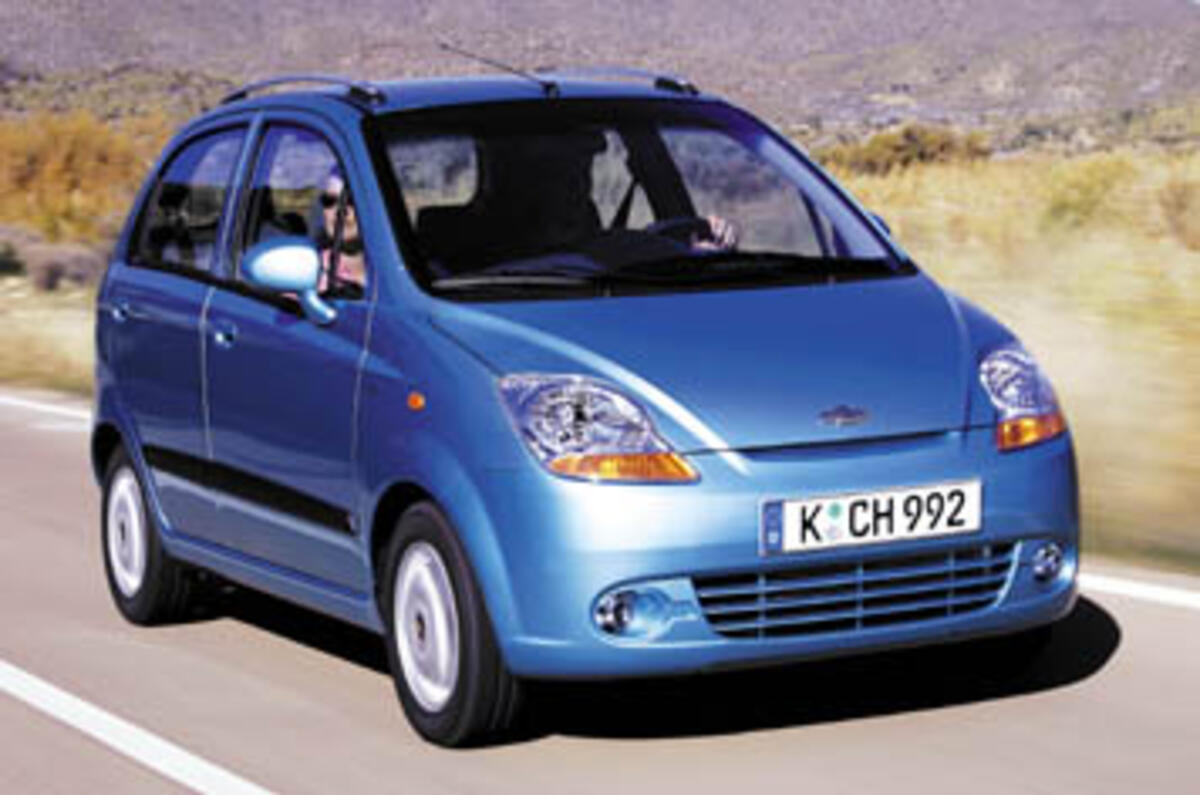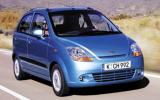Autocar has had a difficult relationship with the Matiz. In its original incarnation, as a Daewoo, we rolled two examples while reversing at low speed, which led to grave concerns about its stability.But here’s Matiz Mk2 – now wearing a Chevrolet badge, of course, but retaining the same dimensions, engines and front-wheel-drive layout as its predecessor but with a heavily reworked exterior, a more modern interior and revised underpinnings. With city car competition getting hotter all the time it’s going to have to be an effective upgrade.
On the outside, the Korean-designed look is distinctive but less cohesive than the original. Under the skin, MacPherson struts are retained up front, but at the rear a new torsion beam arrangement replaces trailing links. Hardly cutting edge, but dependable and cheap to produce. Oddly, given those earlier stability problems, the track has been reduced by 5mm both front and rear.Power comes from a choice of two petrol engines: the 50bhp 796cc three-cylinder we’ve driven here and a 64bhp eight-valve 1.0-litre four-cylinder. Both have been revised to comply with the latest Euro4 emissions standards and deliver 54.3mpg and 50.4mpg respectively.
How the new Matiz performs depends greatly on where it is driven. At low speeds around town it is terrific. The engine’s rapid response and 53lb ft of torque make it feel livelier than the claimed 18.2sec to 62mph suggests, and the standard five-speed manual ’box has a long but light action. Manoeuvrability is key to its appeal. With a tight turning circle and accurate steering, the Matiz is very agile.When the road opens up, however, it’s less convincing and the engine feels out of its depth at motorway speeds. The three-cylinder sounds thrashy above 5000rpm and wind buffeting makes the whole experience rather unpleasant.
The Matiz’s reworked suspension copes well on smooth surfaces, but over pockmarked roads the ride becomes uncomfortably bouncy. Grip from the narrow 155/65 R13 tyres is limited, the front end pushing wide where rivals display greater composure. Body roll is more controlled than before, but it is always a factor even at moderate cornering speeds, due to the car’s height.
Inside, the dashboard and cabin have been revamped, with more storage. It is a simple driving environment in keeping with the car’s honest nature, but the quality is disappointing: there’s lots of hard plastic and nasty nylon. Still, it’s well bolted together and there were no creaks or groans from our test car.
Space is impressive. The Matiz will easily carry four adults, but the seats are quite flat and a little short on cushion length, making journeys of over an hour rather uncomfortable.
While UK prices have yet to be announced, one thing is certain: the new Matiz will continue to be bought on price rather than on the strength of its ability. And at £6000, it represents good value, especially when you consider the three-year warranty and fairly generous standard equipment list.











Add your comment